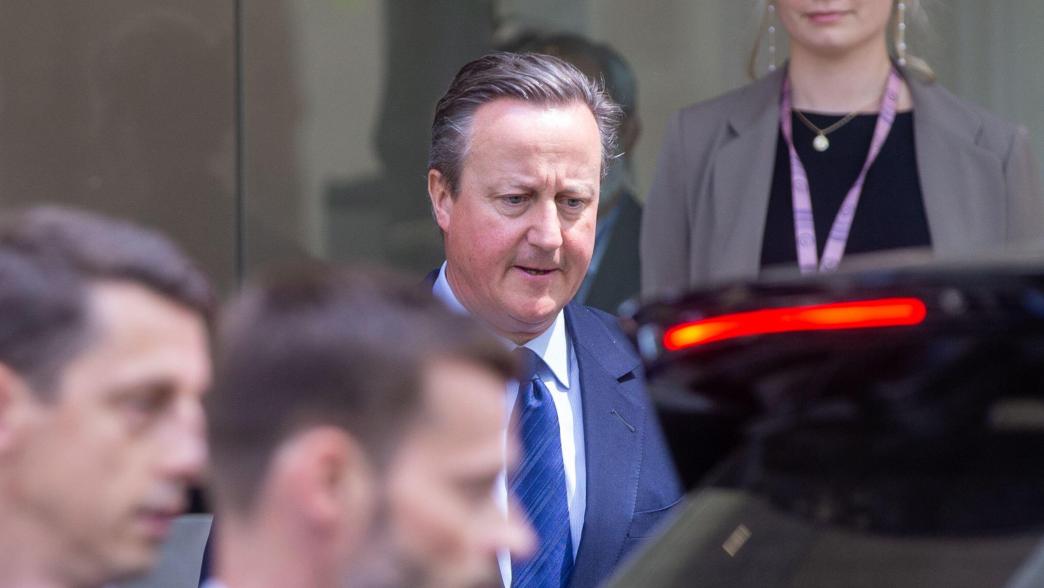Four things we learned last week in the Covid Inquiry
Key political figures involved in pandemic planning have been appearing before the Covid-19 Inquiry.

After key political figures involved in pandemic planning appeared before the Covid-19 Inquiry, Emma Norris looks at what we learned – and what is coming this week
1. Cameron and Osborne deny austerity affected our preparedness
As had been long-trailed, inquiry chair Baroness Hallett is exploring the impact of austerity on the UK’s preparedness for the pandemic – and both David Cameron and George Osborne defended austerity as a political choice that in fact left the country better prepared to tackle a crisis. But as the IfG has written, our own research – put to Osborne during the hearing – found that public spending reductions made it harder to maintain standards in crisis. Professor Michael Marmot – a leading academic and expert adviser to the inquiry – has also demonstrated in his research that health inequalities were exacerbated by austerity, which then played out during the pandemic.
2. The UK prepared for the ‘wrong’ pandemic – or did it?
Another clear line of questioning was on whether the government prepared for the ‘wrong’ pandemic. On this there was more agreement. Cameron repeatedly acknowledged that pandemic preparations had focused on influenza and that this had been a serious shortcoming – though he did not go as far as explaining why other forms of virus had received less attention, admitting that “it is very hard to answer why [that was] the case.” This theme raised more questions than answers as it emerged that, in 2016, Public Health England had undertaken a one-day planning exercise on coronaviruses – Exercise Alice – which made observations about the need to stockpile PPE, look at border control measures and plan for mass contact tracing. The inquiry will no doubt explore the extent to which Exercise Alice’s recommendations were heeded – and if not, why not.
There are other aspects of the ‘flu defence’ which are confusing too. Though it might have been harder to conceive of legally enforced lockdowns as part of this scenario, previous influenza pandemics – including as far back as the Spanish Flu outbreak in 1918 – did result in social distancing, enforced school closures, shop closures and transportation restrictions, which meant influenza planning should have anticipated major economic shocks of the kind we experienced.
3. Questions are being asked about the role of ministers
The role of ministers – and in particular the importance of political attention as a means of getting things done in government – has been in the spotlight. When reflecting on central government’s approach to planning for and dealing with major risks, David Cameron was firm that the system works best when "the prime minister is in the chair… making the decisions." Boris Johnson, of course, failed to attend some early COBR meetings on Covid-19. Expect this to be a line of questioning when Johnson is called to give evidence – most likely as part of the second module on government decision making, starting later this year.
A similar theme emerged in one of the hearings that got a little less attention: Chris Wormald, the permanent secretary for the Department of Health and Social Care, who also gave evidence last Monday. He was asked at some length about concerns expressed by members of the health department’s board on the “continuing lack of engagement” of then-health secretary Jeremy Hunt. Board members’ concerns were raised at a meeting looking into 2016’s Exercise Cygnus, an influenza pandemic planning exercise.
4. There is disagreement about the impact of Brexit
Did Brexit affect pandemic planning? A letter from chief medical officer Professor Chris Whitty to Sir Chris Wormald in early 2019 showed that almost 20 workstreams on pandemic planning were paused, reduced or stopped because team members and other resources had to be shifted to focus on planning for a no-deal Brexit. One of the areas that suffered because of this reprioritisation was a refresh of pandemic influenza plans – which would have included planning around adult social care and vaccines. However, Wormald was careful to set out that Brexit preparations had also been helpful for pandemic preparedness – for instance, helping the department to build capabilities that were subsequently used during the pandemic. Our own work has similarly found that some processes and systems developing during Brexit were redeployed during the pandemic.
Former health secretary Matt Hancock MP, former first of minister of Scotland Nicola Sturgeon and Dame Jenny Harries, England’s deputy chief office during the pandemic, are giving evidence this week. The hearings will no doubt give us more answers about decision making during the pandemic – but they will give the inquiry more pressing questions to ask in the weeks, months and years to come.
- Topic
- Coronavirus
- Political party
- Conservative
- Position
- Health secretary Prime minister
- Administration
- Johnson government Cameron government
- Department
- Department of Health and Social Care
- Public figures
- David Cameron Boris Johnson Matt Hancock Chris Whitty
- Publisher
- Institute for Government